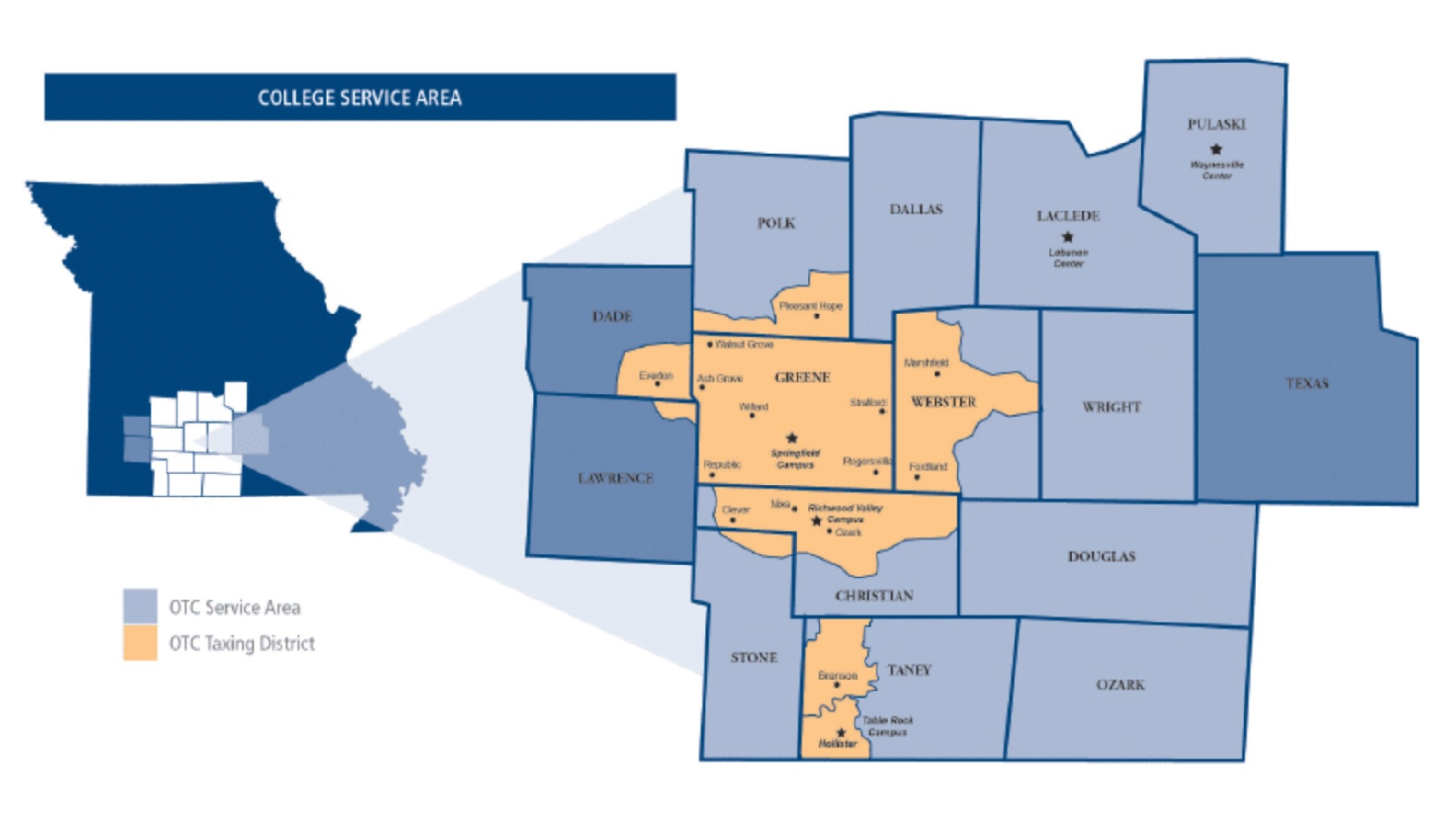Students at Ozarks Technical Community College will see an average increase of almost 3% to tuition fees for the upcoming fall semester.
The OTC Board of Trustees on March 20 approved the increase, which is expected to generate about $1 million in additional revenue for the 2024-25 school year. That money will be used to keep up with increasing costs of operating the college system, said Chancellor Hal Higdon, in order to maintain the college’s quality standards.
“We have increasing costs, increasing utilities, and we have new programs we are expanding,” Higdon said. “And frankly, we continue to struggle to make sure we have salaries competitive from entry level to executive level. We are in a different economy.”
Students who reside in the college’s district will see fees for Tier 1 classes increased by $3 to $131 per credit hour. Tier 1 classes are considered general education classes.
Tier 2 classes, which are for technical education programs, will go up by $4 to $141 per credit hour. Tier 3 classes, which are health science programs, will increase by $4 to $153 per credit hour.
In-district and out-of-district students taking Tier 1 courses represent about 72% of the student population at OTC, said spokesperson Mark Miller. The college charges higher hourly costs for students who are either out-of-district, out-of-state or international.

With its vote, the board of trustees also approved adjustments to program fees separate from the tuition fees. Some increased while others decreased — Chief Financial Officer Drew Courtway said that some of the decreases are attributed to non-credit programs becoming credited, while others are chalked up to lower supply costs.
Higdon said the college has been studying the potential for fee increases since the previous fall semester, with an eye on how much funding higher education would receive from the state. That increase started with a recommended 5% from the Coordinating Board for Higher Education, then shifted to around 3% based on a recommendation from Gov. Mike Parson’s proposed budget for higher education.
The budget should be formalized by the end of the legislative session in May. Higdon is optimistic that cuts to higher education made by a Missouri House of Representatives budget committee will be restored, he said during the meeting.
Despite the increased cost to students, Higdon said he was proud that the college could increase slightly below the rate of inflation, which the U.S. Department of Labor puts at 3.2%. He also touted costs that are below the costs at Missouri State University and Drury University.
“We are still very happy with the fact that, with our neighbors across the street and across town, we are the best value,” Higdon said.
Reporter's note, March 20: This report has been edited to correct details about types of students and state funding projections, and to correct a quote.

